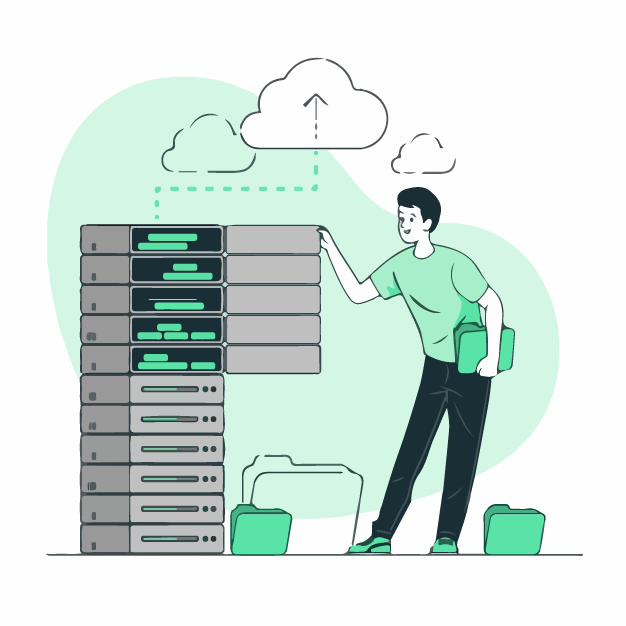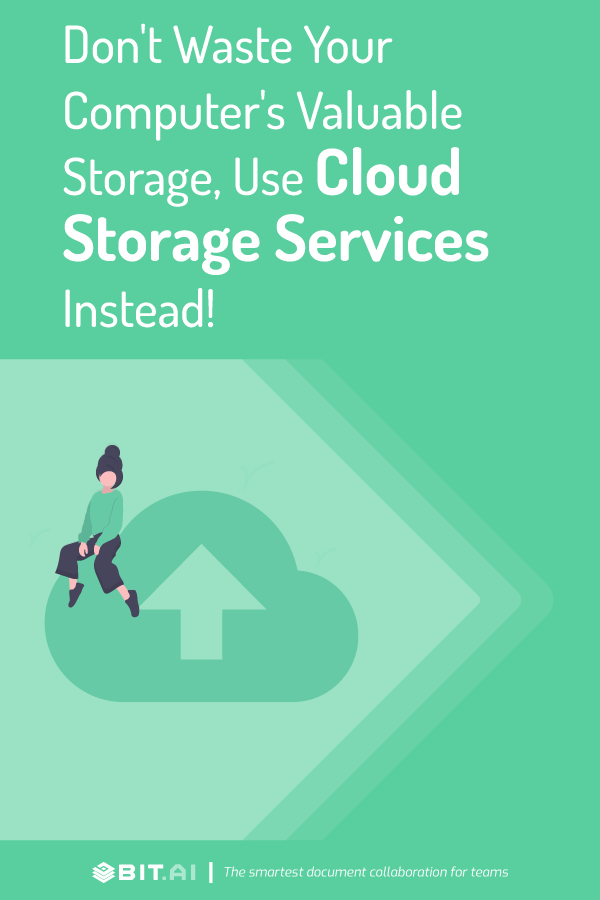From the invention of cathode-ray tubes in 1947 to cloud-based online storage in 2006, followed soon after by the first 1 TB hard disk drive in 2009, the way we store data has well and truly evolved.
There are quite a few data storage solutions out there these days, and which one is best for your business depends on the size and sensitivity of the data you’re storing, the size of your business, how fast your business is expected to grow, and budget.
What is required by a large multinational company, or a government department will obviously be quite different from what a medium-sized business, or a single self-employed individual need. In this article, we will focus on the latter two and cloud storage solutions.
Difference between Cloud Computing and Cloud Storage
Cloud storage solutions are essentially very large data centers around the world, which are accessed via the internet. Cloud storage means saving data to an off-site storage system maintained by a third party. Data is saved to a remote database rather than on your computer’s hard drive.
 On the other hand, cloud computing is something you have probably already used without being aware. For example, Facebook, Twitter, Gmail, Flickr, Instagram, YouTube, Gmail, Google Drive, and Microsoft OneDrive. These are all examples of cloud computing systems.
On the other hand, cloud computing is something you have probably already used without being aware. For example, Facebook, Twitter, Gmail, Flickr, Instagram, YouTube, Gmail, Google Drive, and Microsoft OneDrive. These are all examples of cloud computing systems.
Both cloud storage and computing use the Internet to do the things you once used your own computer’s hard drive for, including storing photos or other information, editing photos, and word processing. You edit from the device of your choice and the data gets stored on a network of interconnected computers.
A key attribute of cloud computing and storage is virtualization. Virtual machines can be created to subdivide the computing power, memory, and storage of a machine into multiple smaller units, each of which runs its own operating system. This enables computing resources to be distributed more efficiently.
Read more: Best Cloud Document Management Systems to try in 2021
Why Choose Cloud Storage over Hard Disk Storage?
Did you know that cloud storage has several advantages over hard disk data storage? Let’s find out!
For example, it gives you the ability to access your data wherever your device can connect to the Internet. You can start working from home on your computer, edit your work from your mobile phone on the train, and walk into a meeting with a laptop set up ready to use, and you can access your document from there too.
With the right storage system, you could also allow other people to access the data, for easy collaboration.
 Designed for small and medium-sized businesses as well as individuals for private use, cloud storage not only offers portability and collaboration, but also ensures automatic data backup meaning you no longer have to worry about forgetting to save a document, or losing your work in the event your device crashes.
Designed for small and medium-sized businesses as well as individuals for private use, cloud storage not only offers portability and collaboration, but also ensures automatic data backup meaning you no longer have to worry about forgetting to save a document, or losing your work in the event your device crashes.
Before deciding on cloud storage solutions, ask yourself how mobile your business documents need to be, whether you need to share documents and collaborate with others, and whether or not you have large amounts of data and storage space issues.
What is so useful about the cloud?
For most of us, it’s a struggle to manage storage space. We either have to waste time scrolling through data we’ve stored and delete it, or we have to buy new external storage space.
For others, it is not financially viable to buy expensive software if you don’t need to use it that often, so opting for cloud storage translates to savings on servers, networks, bandwidth, power, cooling, office space, and the experts needed to install, configure, and run the setup.
Cloud storage involves saving data on hardware in a remote physical location, which you can access using any device via the internet. You send files to a data server maintained by a cloud provider instead of, or in addition to, storing it on your own hard drives.
Cloud computing includes Infrastructure as a Service (IaaS), in which big companies such as Amazon and Google make large and complicated computing infrastructure available to smaller companies (think Amazon e-commerce sites); Platform as a Service (PaaS), in which developers create online applications for specific sets of users; and Software as a Service (SaaS), in which clients use software over the internet.
So in both cloud storage and cloud computing, you connect to a remote infrastructure using the Internet, but in computing the infrastructure includes shared processing power and software among others.
This means you don’t have to worry about having to update and maintain your software and systems, and you get access to the processing power of a huge network of supercomputers.
Okay, but where is everything?
Where does the information go?
Whatever you upload to the cloud, or run from the cloud, exists on specific servers located in warehouses, often on campuses full warehouses that do just that. They are called data centers, and they are owned by cloud service providers who maintain the servers.
A data center’s role is to keep your data physically safe from theft and destruction and to make sure it’s available whenever you need to access it. These warehouses need to run extensive cooling systems to prevent the electronics from overheating and have backup generators in the event of a blackout or power surge, to ensure a consistent and reliable service.
 With your data in the cloud, you may be imagining it in one warehouse somewhere. But the reality is that it may be stored in a few different places, countries, or even continents, it largely depends on where the service provider’s data centers are located.
With your data in the cloud, you may be imagining it in one warehouse somewhere. But the reality is that it may be stored in a few different places, countries, or even continents, it largely depends on where the service provider’s data centers are located.
As a matter of fact, cloud providers make multiple copies of the data you upload and purposely store these in separate locations to ensure that it won’t get destroyed, lost, or affected in any way, should there be a natural disaster or other problems.
Read more: Virtual Data Rooms Guide For Better Data Management
Cloud Backup
It is worth noting that there is a difference between cloud storage and cloud data backup. Cloud storage complements your local and network storage and increases productivity, while the backup is specifically for data recovery.
Before considering which cloud backup service to use, you should ask yourself what you want to happen in the event of a computer or server failure, and how long you need to store backups.
For most small businesses, both cloud storage and local storage is the optimal solution. In this way, you protect your data by storing it in multiple locations and have the peace of mind of knowing that it’s also right there, where you can touch it.
To Cloud or Not to Cloud?
Solving storage space problems can be quite challenging. Some businesses invest in larger hard drives and in-house data centers. Others might decide on data expiry dates and opt for permanent deletion.
However, although there are some things to watch in cloud storage, most small to medium-sized businesses will inevitably find their way to cloud storage.
In short, the advantages of cloud storage outweigh the advantages of physical storage. Cloud storage is cheaper, more convenient, scalable, incorporates automatic saving, and makes it easier to collaborate in a day and age where remote working is the norm. And it enables you to run essential programs and applications via the Internet, saving time, space, and money.
Further reads:



